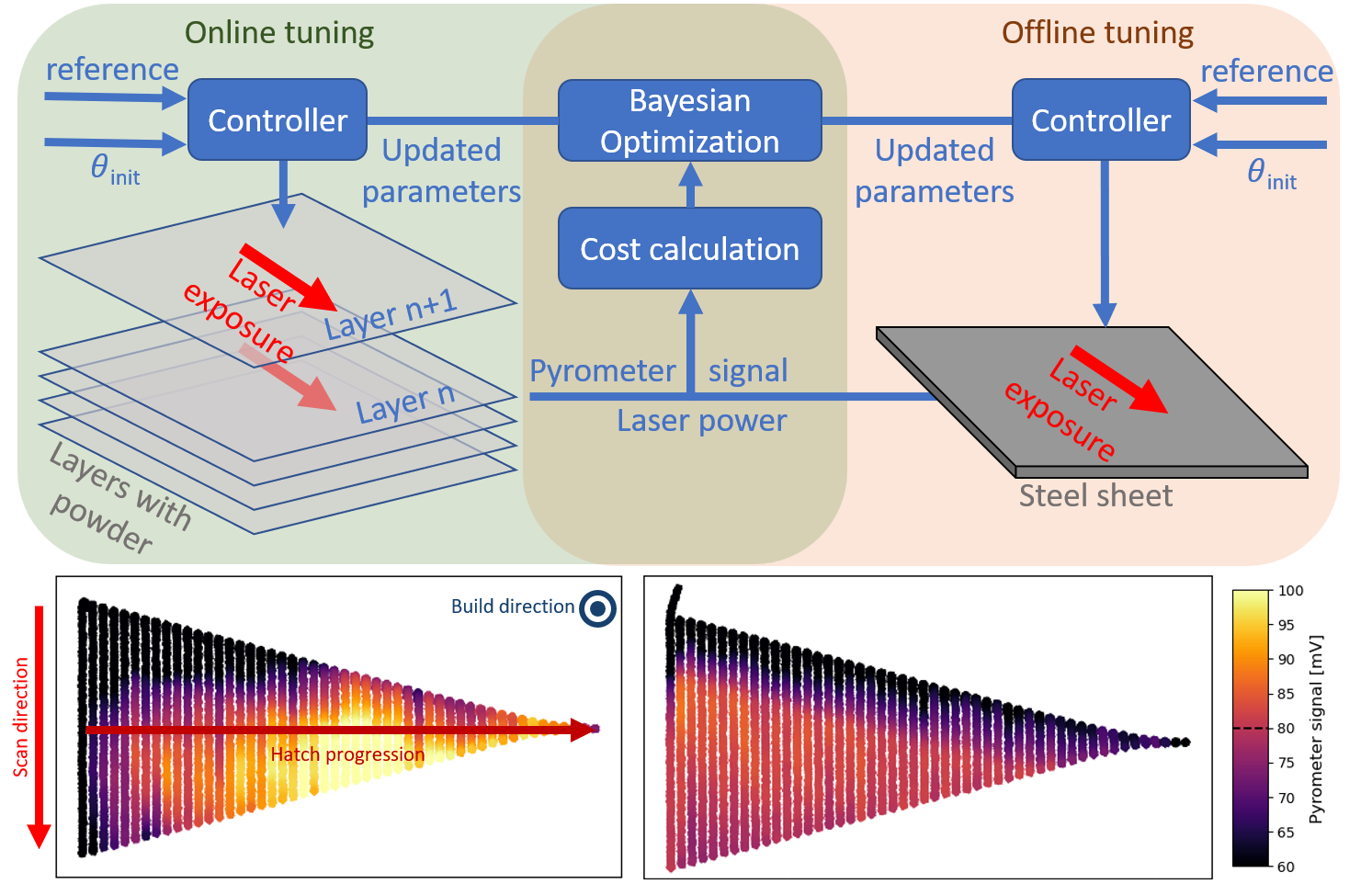Publication alert
New paper alert: In-situ controller autotuning by Bayesian optimization for closed-loop feedback control of laser powder bed fusion process
Our latest paper, "In-situ controller autotuning by Bayesian optimization for closed-loop feedback control of laser powder bed fusion process" has been published in the Additive Manufacturing (Volume 99, February 2025). Besides exploring the use of a high-frequency in-layer closed-loop controller for melt pool stabilization against increasing pre-heat conditions, we utilized Bayesian Optimization to auto-tune the implemented controller in a layer-to-layer fashion in offline and online settings.
Thanks to the coauthors for the valuable collaboration and guidance: Efe C. Balta, Michael R. Tucker, Raamadaas Krishnadas, Alisa Rupenyan, John Lygeros, and Markus Bambach
Abstract: Laser powder bed fusion (LPBF) additive manufacturing (AM) traditionally relies on static parameter assignment in an open loop, which can lead to defects when faced with complex thermal histories and process variability. Closed-loop control offers a promising alternative that can enhance stability and mitigate defects. However, controller performance relies heavily on precise parameter tuning, a process that is typically manual and system-specific. This study employs Bayesian Optimization (BO) as an automated, sample-efficient method for tuning in-layer controllers in LPBF, leveraging the repetitive nature of the process for either online (in-process) or offline (pre-process) tuning. We experimentally apply BO to tune an in-layer PI controller to modulate laser power, assessing its performance on wedge geometries prone to overheating. The results show that BO significantly reduces overheating, outperforming uncontrolled settings. Notably, this study presents the first microstructural analysis of parts produced with in-layer controlled tuning, identifying lack-of-fusion porosities caused by the controller’s corrective adjustments. In summary, BO demonstrates strong potential for automated controller tuning in LPBF, with implications for broader applications in AM, suggesting a path towards more adaptive and robust control across diverse machines and materials.
Check out the full paper external page here.
